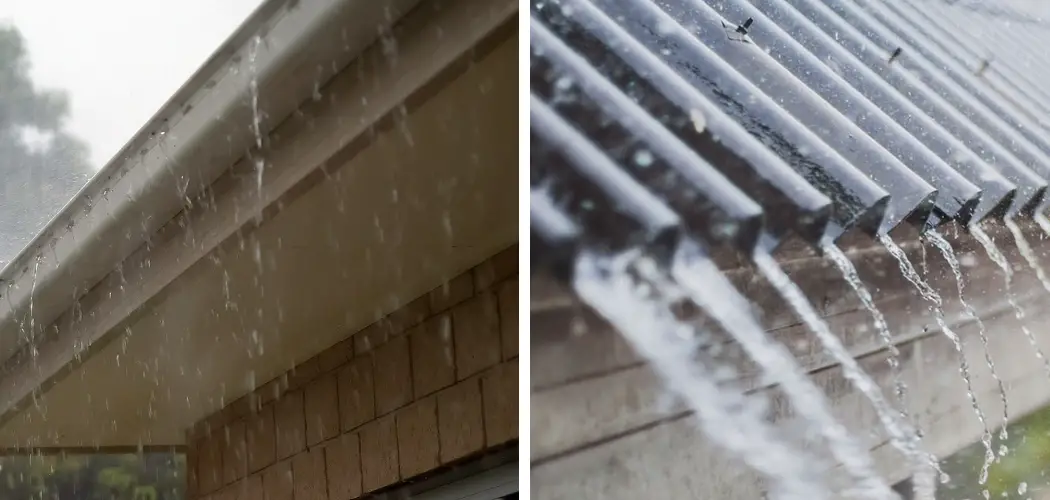Are you dealing with incessant flooding under your home every time it rains? Immediately following a shower, do you notice water seeping in and causing costly damages? Then read on to discover how to stop rain water from going under house.
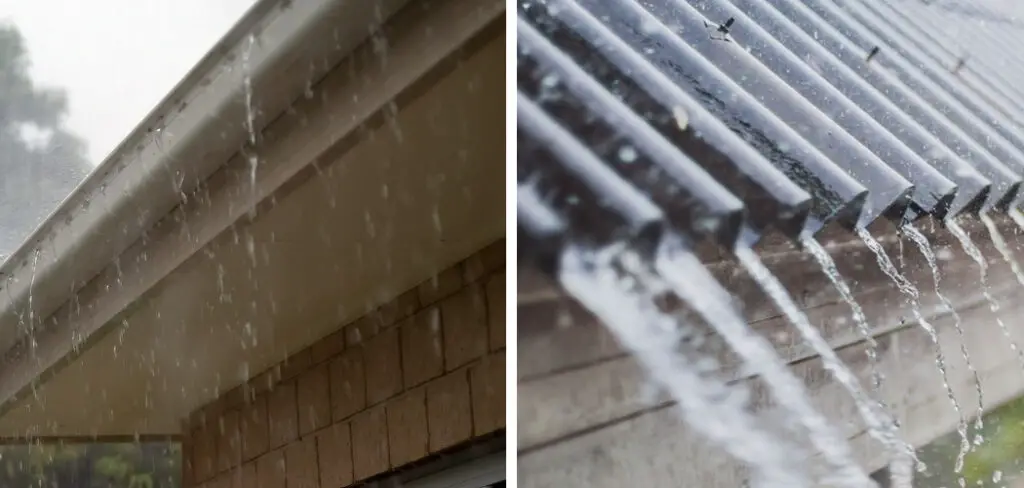
With easy-to-follow steps, you can make sure that the next rainfall won’t create any damage around or underneath your residence. This blog post provides simple tips for drying out the area around your house foundation and keeping water out when it starts pouring outdoors!
Many homeowners know the frustration that comes with finding water in their basements, and more often than not, it can result from surface rainwater seeping through cracks or weaknesses in their foundations.
Having a dry basement is important for both the structural integrity of your home and preventing mold growth, so it’s essential to take steps to prevent this from occurring. If you’re wondering how exactly to stop rainwater from going under your house, the good news is that there are several effective methods you can use.
Why is It Important to Stop Rain Water From Going Under House?
It is important to stop rainwater from going under your house for many reasons. Such as:
1. To Prevent Foundation Problems
One of the most important reasons why it is important to keep rainwater from entering under your house is to prevent foundation problems. Rainwater can cause water seepage and dampness, which can lead to structural damage with time if left unchecked.
Also, moisture can encourage the growth of mold and mildew, leading to air quality problems.
2. To Reduce Damage to Interior Walls
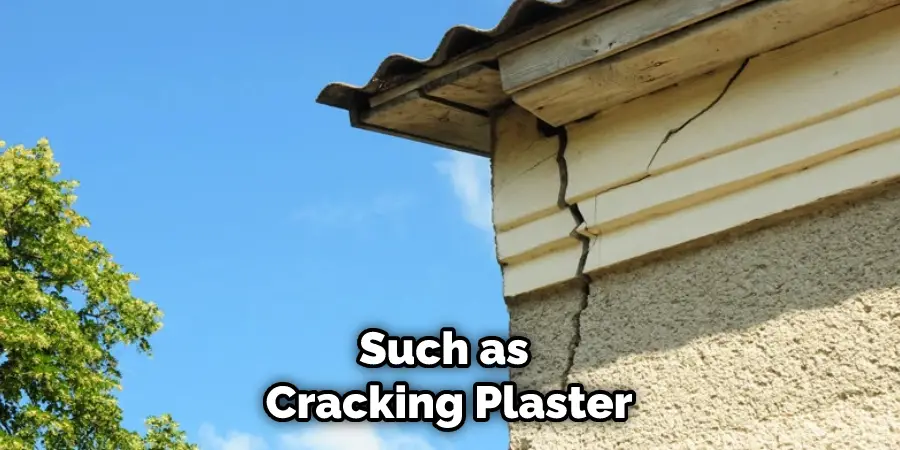
If rainwater goes under your house, it may reach interior walls, causing damage such as cracking plaster or bubbling paint. This can cause expensive repair bills and reduce the value of your property. Make sure to check the walls around your house and look out for any signs of water damage.
3. To Protect Pipes From Freezing
Rainwater can cause pipes to freeze in winter, leading to costly repair bills. Make sure that all drainage systems are properly sealed so that rainwater does not penetrate them. Also, make sure that any pipes exposed to outside temperatures are properly insulated.
4. To Keep Insects and Animals Away
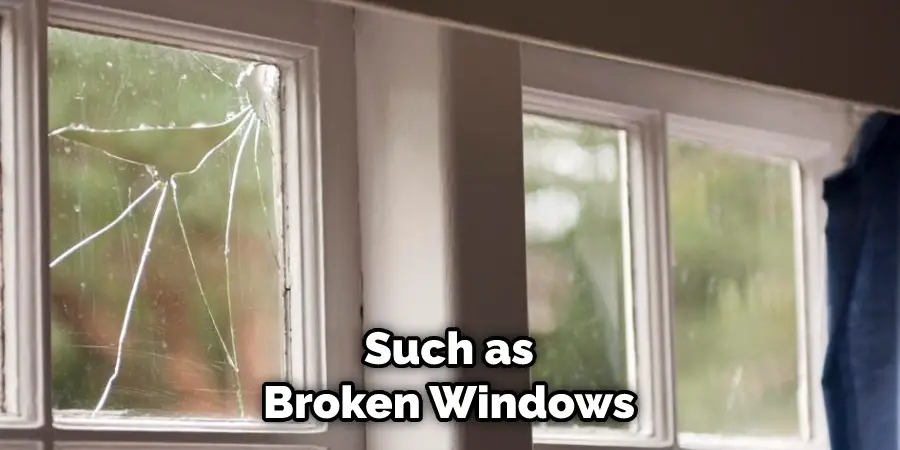
Rainwater can attract unwanted insects and animals into your home, especially in damp basements or crawlspaces. By keeping rainwater away from those areas, you will reduce the likelihood of an infestation.
Also, be sure to check for any other openings in your property, such as broken windows or loose doors, that may allow the entry of unwanted pests.
Overall, it is important to stop rainwater from going under your house to protect the foundation and prevent damage to your home’s interior and exterior.
Be sure to regularly inspect drainage systems and other areas exposed to the elements so that you can identify any potential problems early. Taking these steps now will help keep your home safe for years to come.
12 Tips On How to Stop Rain Water From Going Under House
1. Use a French Drain
This is a great way to divert water away from your house. A French drain is a trench filled with gravel, stones, or other materials that have been designed to channel water and redirect it away from the base of your home. Also, ensure the drainage system is correctly graded and leads away from your house.
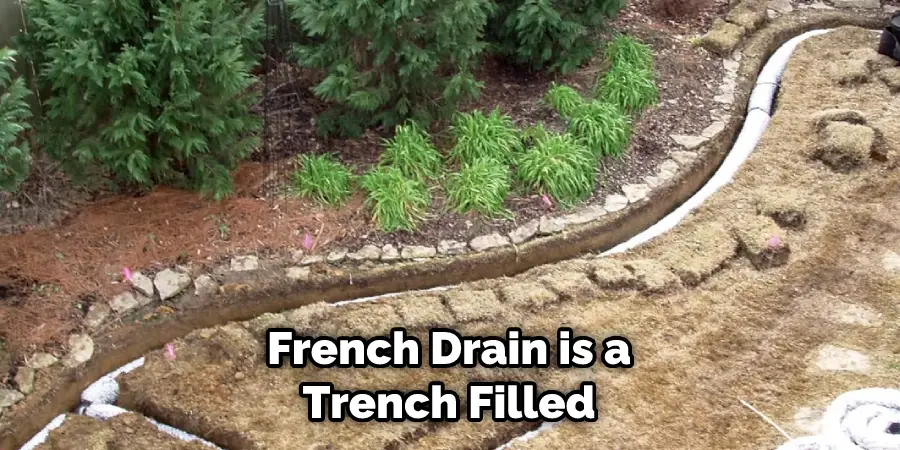
2. Install a Rain Gutter System
Having a quality rain gutter system installed can help divert water to specifically designated areas, which will help keep it away from your foundation walls. Ensure the rain gutters are properly sloped so that all the water flows away from the house.
3. Check Downspouts
Chimney downspouts must be clear of any debris or obstructions that impede their ability to drain water away from your home’s foundation. If they are clogged, it could cause the rainwater to overflow and run back toward your home instead of away from it.
4. Slope the Ground Away From Your Home’s Foundation
If you have a lot of ground that slopes toward your house, it can cause rainwater to pool against the foundation and even seep in through cracks and joints. Ensure the ground around your home is graded correctly so it slopes away from your foundation walls.
5. Install a Sump Pump
If you have a basement or area of your home with a lower level, it is wise to invest in a sump pump. This will help divert water away from the basement before it can cause any damage. Also, be sure to check the sump pump regularly and have it serviced by a professional every few years.
6. Clean Out Gutters, Downspouts and Drains
Cleaning out your gutters, downspouts, and drains regularly will help ensure that they are working properly and not clogged up with debris. If they become clogged, it can result in water overflowing and pooling around your home’s foundation walls.
7. Check for Leaks
Periodically check for any leaks or cracks around your foundation walls. If you find any, be sure to have them sealed up as soon as possible to prevent water from entering your home. Also, check for any loose mortar, which can cause water to leak.
8. Check Window Wells
If you have windows on the lower level of your home, ensure they are properly sealed, and the window wells are clear of debris. A lot of debris or dirt around the window well can cause water to pool and possibly seep in.
9. Install Splash Blocks
If you have a lot of rainwater falling off your roof or running down the side of your house, consider installing splash blocks around the perimeter of your home. These will help divert the water away from the foundation walls and into designated areas.
10. Seal Basement Joints
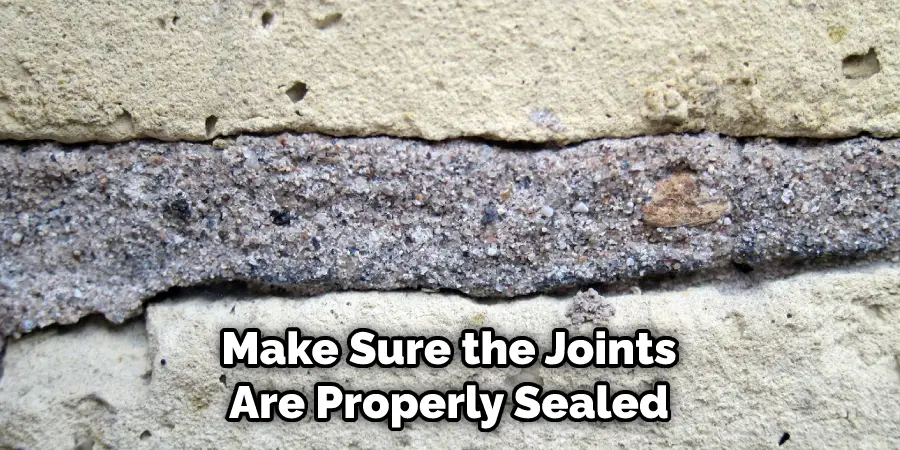
If you have a basement, make sure the joints are properly sealed as this can help prevent water from seeping through any cracks. It will also help keep out any moisture or humidity. Also, check any basement windows and make sure they are sealed properly.
11. Check Your Siding
If your home is sided with wood, brick, or stone, check it periodically for any holes or cracks that may be allowing rainwater to enter the interior of your house. If you find any, have them filled in or patched up as soon as possible.
12. Invest in a Dehumidifier
A dehumidifier can help control the moisture and humidity level within your home, which can help prevent the growth of mold and mildew. If you have a basement, it is especially important to invest in one, as this can help keep the area dry and free from excess moisture.
Keeping your home dry will also help remove any excess rainwater that may be trying to find its way through cracks and crevices.
By following these steps, you can help protect your home from the damaging effects of rainwater and prevent it from seeping in under your house. By taking some simple precautions, you can help protect your home and keep it dry.
Frequently Asked Questions
What Precautions Should I Take to Prevent Rain Water From Going Under My House?
You can take a few steps to prevent rainwater from going under your house. First, make sure that the soil around your foundation is graded correctly so that it slopes away from the house and directs water away from it.
Additionally, install gutters on your roof to catch rainwater and direct it off of your property with downspouts. You should also regularly check the soil around your foundation to ensure no low spots could collect rainwater and direct it toward the house.
Can I Install a Drainage System Around My House?
Yes, you can install a drainage system around your house as an added precaution against rainwater entering your home. A properly installed drainage system will help direct water away from your foundation and ensure that the soil grade remains at an angle that directs water away from the house.
Make sure to consult with a professional to ensure that your drainage system is installed correctly and that the pipes are properly sealed to prevent water from entering your foundation.
Can I Put Down a Vapor Barrier to Protect My House?
Yes, you can put down a vapor barrier in order to protect your house from rain water. A vapor barrier is a specially designed plastic sheeting placed underneath your house’s foundation to create an impermeable seal against moisture and water seepage. Make sure to consult with a professional to ensure that your vapor barrier is installed correctly.
Conclusion
Now you know how to stop rain water from going under house. It is important to act quickly when you notice a leak and to use the right materials. Pay attention to where water flows naturally, and be sure to install flashing and seal windows and doors properly.
Finally, consider installing a waterproofing membrane and a French drain system if your home is in an area prone to heavy rainfall. With these steps, you can be sure to keep rain water away from your home’s foundation.
Having a waterproof foundation is important for the longevity of your home and can save you much frustration and costly repairs in the future. Taking the necessary steps to ensure that you have proper drainage around your house is one of the best ways to protect it from water damage caused by rain.
Following these simple tips can help you keep the water out and your home safe from any potential damage.

